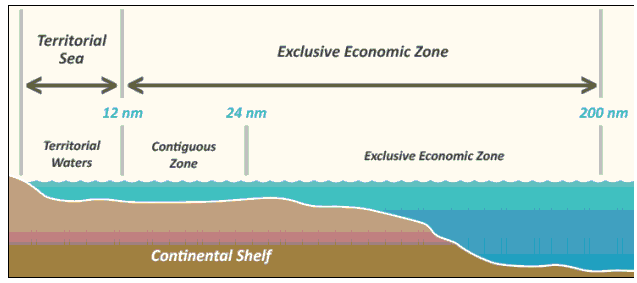The criterion “wholly obtained or produced” is one of the two basic types of
origin criteria which have to be fulfilled for the purpose of determining the
country of origin of a commodity in preferential trade relations.
It is mainly used for natural products and for goods made from natural products
which are obtained entirely in one country or area, comprising products extracted or
harvested in a country and live animals born, raised or hunted there.
The scope of wholly obtained or produced products is normally interpreted in a very
strict way, insofar as the addition of imported parts or materials excludes such products
from being wholly obtained or produced.
For the sea fishing industry, the wholly obtained or produced criterion is very important.
The sea beyond territorial waters (the open sea) is not considered to belong to the
national territory of a country.
The (Revised) Kyoto Convention requires that fish caught outside the territorial sea and
other products extracted from marine soil or subsoil outside a country’s territorial
waters have to be taken by vessels of that country in order to fulfill the criterion of
wholly obtained.
The Territorial Sea
The Territorial Sea is an area of water not exceeding 12 nautical miles (22,2 km)
in width which is measured seaward from the territorial sea baseline.
The territorial sea is regarded as the sovereign territory of the coastal state.
If this zone overlaps with another state’s territorial sea, the border is taken as the
median point between the states’ baselines, unless otherwise agreed.
The contiguous Zone
The contiguous Zone is a belt of water adjacent to the territorial sea with its outer
limits not exceeding 24 nautical miles (44,4 km).
This zone must be claimed and does not exist automatically. It allows coastal states
to exercise the control necessary to prevent and punish infringements of Customs,
sanitary, fiscal and immigration regulations.
The Exclusive Economic Zone
The Exclusive Economic Zone is the area of sea beyond and adjacent to the territorial sea.
Its outer limit cannot exceed 200 nautical miles (370 km) from the territorial sea baseline.
A coastal state has control of all economic resources within its Exclusive Economic Zone,
including fishing, mining and oil exploitation.

Retrieved from:WCO ORIGIN COMPENDIUM
With regard to goods of the sea fishing industry, the provisions on wholly obtained
or produced goods might also be supplemented by definitions of what constitutes a
vessel of a contracting party.
